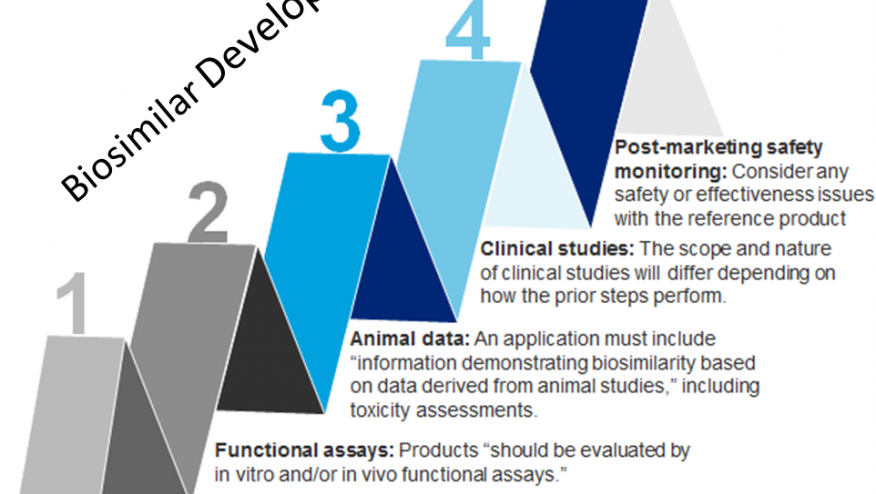Biosimilar of Remicade Works in Ankylosing Spondylitis Save

CT-P13, a biosimilar of infliximab (Remicade), demonstrated comparable and durable efficacy in the treatment of ankylosing spondylitis (AS), a multinational study found.
At week 54 of treatment, 67% of patients receiving CT-P13 (Remsima, Inflectra) had improved by 20% according to the criteria of the Assessment of Spondyloarthritis International Society (ASAS20) versus 69.4% of those given infliximab, reported Jurgen Braun, MD, of Rheumazentrum Ruhrgebiet in Herne, Germany, and colleagues.
There also was no difference in the proportion of patients achieving ASAS40 responses at week 54 (54.7% versus 49.1%) or in ASAS partial remission (19.8% versus 17.6%), they wrote online in Arthritis Research & Therapy.
The study results "provide a level of reassurance that with continued utilization, both products continue to behave in a comparable fashion," commented Mark Genovese, MD, of Stanford University School of Medicine in Stanford, Calif., who was not involved in the study.
Biosimilar agents such as CT-P13 "are, in many regards, about as close a copy as you can make to the originator product -- in the protein structure and, in general, in the way they behave," Genovese toldMedPage Today.
Infliximab is a human-murine chimeric monoclonal antibody directed against tumor necrosis factor (TNF), and was the first anti-TNF biologic shown to be effective in AS.
"However, the costs of infliximab [reference product] and other originator biologics are often high, placing considerable financial burden on healthcare systems and, in many countries, restricting patient access," Braun and colleagues noted.
Biosimilars "offer us an opportunity to potentially reduce the cost of these drugs, and to improve access to these agents for our patients," added Genovese.
CT-P13 was shown to be equally effective as infliximab in rheumatoid arthritis (RA) for up to 2 years, and also comparable in AS at 30 weeks in a study known as PLANETAS.
To provide additional longer-term data on the efficacy, safety, and immunogenicity of CT-P13, the 250 patients enrolled in PLANETAS were followed until week 54. The treatment consisted of the biosimilar or the original infliximab in doses of 5 mg/kg every 8 weeks.
Participants' mean age was 38, and most were male. Mean baseline score on the Ankylosing Spondylitis Disease Activity Score (ASDAS) was 3.9, mean Bath Ankylosing Spondylitis Disease Activity Index (BASDAI) was 6.7, and mean Bath Ankylosing Spondylitis Functional Index (BASFI) was 6.3.
Almost 85% of patients completed the 54 weeks of treatment, and the most common reason for withdrawal was adverse events.
At week 54, the mean change from baseline on the ASDAS was -1.7 in both groups. Changes from baseline on the BASDAI were -3.1 in the biosimilar group and -2.8 in the infliximab group, while changes in the BASFI were -2.9 and -2.7, respectively.
Anti-drug antibodies developed in similar numbers of patients in the two groups (19.5% and 23%).
"It is well documented that development of anti-drug antibodies against infliximab is associated with decreased clinical response and drug serum concentration," the researchers noted.
Among patients who developed anti-drug antibodies while on treatment, 47.6% and 60% of the CT-P13 and infliximab groups, respectively, had ASAS20 responses at week 54.
The pharmacokinetic profiles of the two medications were similar throughout the study.
Adverse events were seen in similar proportions of patients: 74.2% of the CT-P13 group and 67.2% of the infliximab group. Serious adverse events occurred in 7.8% and 6.6%, respectively.
The most common adverse events were abnormal liver function tests, detected in 12.5% of the CT-P13 group and 12.3% of the infliximab group, upper respiratory tract infections in 9.4% and 6.6%, and infusion reactions in 8.6% and 12.3%.
There were two cases of tuberculosis in the CT-P13 group and one in the infliximab group. One patient in each group died, both in car accidents and not related to treatment.
Further extensions of PLANETAS and the earlier RA trial are being conducted, and a formal study of switching between infliximab and CT-P13 in patients with conditions including spondyloarthritis, psoriatic arthritis, RA, and ulcerative colitis is underway in Norway.
The study's main limitation was that it was primarily designed to compare the pharmacokinetic profiles of CT-P13 and infliximab at week 30. "While prospectively planned, the longer-term efficacy, safety and [pharmacokinetics] data presented here are from a secondary analysis of the study," the authors explained.
Braun disclosed relevant relationships with AbbVie, Abbott, Amgen, Boehringer Ingelheim, Bristo-Myers-Squibb, Celgene, ELLTRION, Centocor, Chugai, EBEWE Pharma, Jannsen, Medac, MSD, Schering-Plough, Mundipharma, Novartis, Pfizer, Roche, Sanofi-Aventis, and UCB. Some co-authors disclosed relevant relationships with Celltrion, Gebro Pharma, Bioiberica, Merck Sharp & Dohme, GlaxoSmithKline, UCB, Roche, Pfizer, Celgene, Amgen, Grunenthal, Sanofi-Aventis, Tedec-Meiji, AbbVie, Boehringer Ingelheim, Centocor, Chugai, EBEWE Pharma, Jannsen, Medac, Mundipharma, and Novartis.
This article is brought to RheumNow by our friends at MedPage Today. It was originally published on January 27, 2016.










If you are a health practitioner, you may Login/Register to comment.
Due to the nature of these comment forums, only health practitioners are allowed to comment at this time.